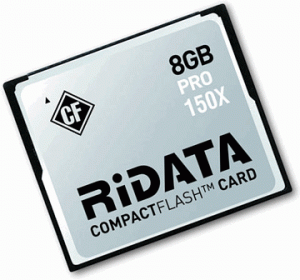Compact Flash Recovery
Compact Flash often shortened to CFII is no longer as popular a storage medium as it once was, smaller form factor Flash technologies such as SD, Sony Memory Sticks and ever smaller variants of the two have taken the place of Compact Flash for most of its traditional applications.
Compact Flash devices are generally similar to most competing storage mediums, they are based around a Microchip controller and one or more NAND Flash Memory chips.
**Important: A small number of Compact Flash devices are actually small form factor spinning platter hard disk drives, and not Flash media at all. These devices tend to be labeled Microdrives and are produced by IBM and Seagate. Click here if you believe that you require hard drive data recovery Services**
Compact Flash devices tend to be far more durable than competing technologies, due to their rigid steel and plastic design. However this durability does not mean that they cannot be broken or damaged or that they will not fail in some other manner.
Common Failures of Compact Flash devices:
Controller Failure
Microcontroller failure is often the underlying problem when Compact Flash devices fail, sympotms of this can vary but normally include at least one of the following:
- Device Data is not accessible
- The CF device shows up as an incorrect size sometimes 512KB sometimes 2TB
- The device appears completely dead and does not show up when attached to the computer
- A burning smell is noticed or smoke is observed coming from the Compact Flash
Electronic Failure
This is normally indicated by the device being completely ‘dead’ and inaccessible from any computer/card reader. As Microcontroller symptoms can be caused by, or can add to electronic issues with the devices, the two are often grouped together. Occasionally failures of this nature are caused by forcing the CF device into a Compact Flash Slot the wrong way around, however, due to the design of the interface this is rare.
Physical Damage
Bent or snapped devices are unlikely to work in any kind of usable state, such devices should be sent immediately for data recovery.
Water / Liquid Damage
Whilst the NAND memory chips are extremely resilient and unlikely to be permanently damaged by a short introduction to liquids, the electronics and circuit board (PCB) are likely to be permanently damaged, in such cases Data Recovery Assistance should be sought. Unlike with hard disk drives, drying out the device immediately is recommended.
There are a number of other situations where data can be lost from a Compact Flash device, if you have experienced one of the above failure, or any other type of failure and wish to discuss what we can do to help, please call 0333 123 3282
Or use our online Contact Form and we will call you right back.



